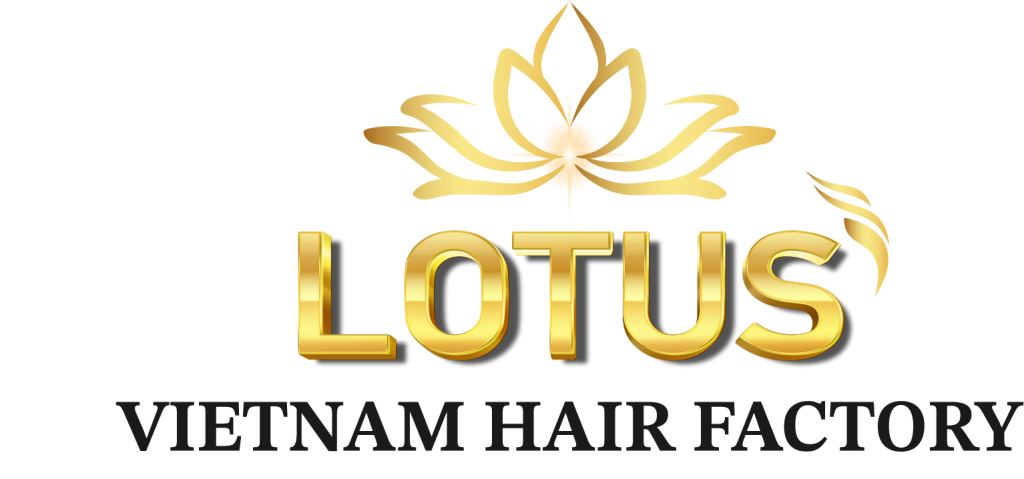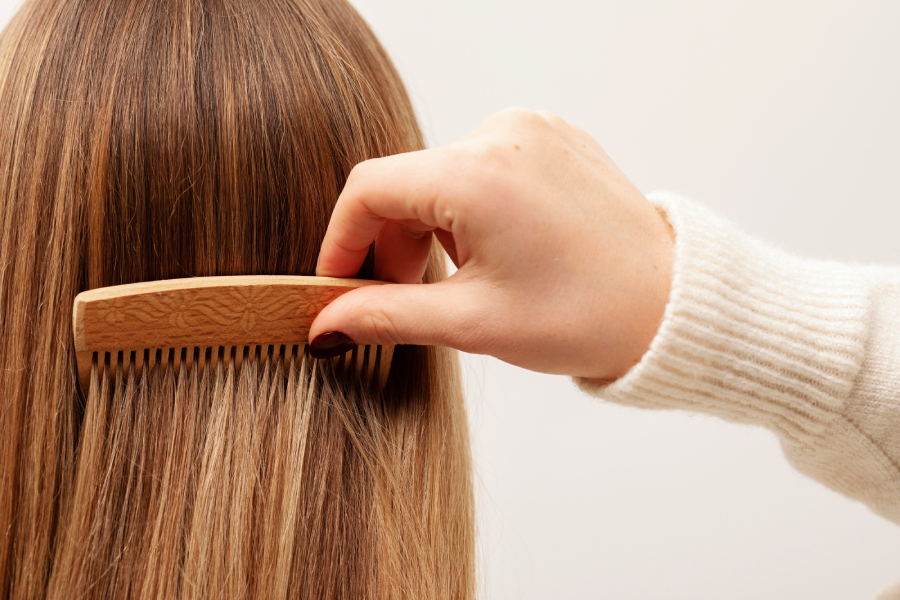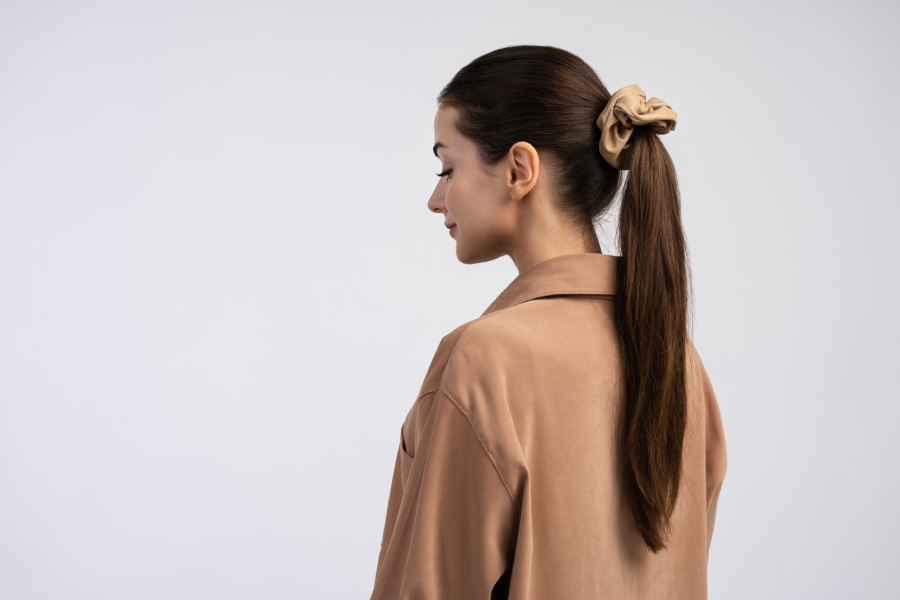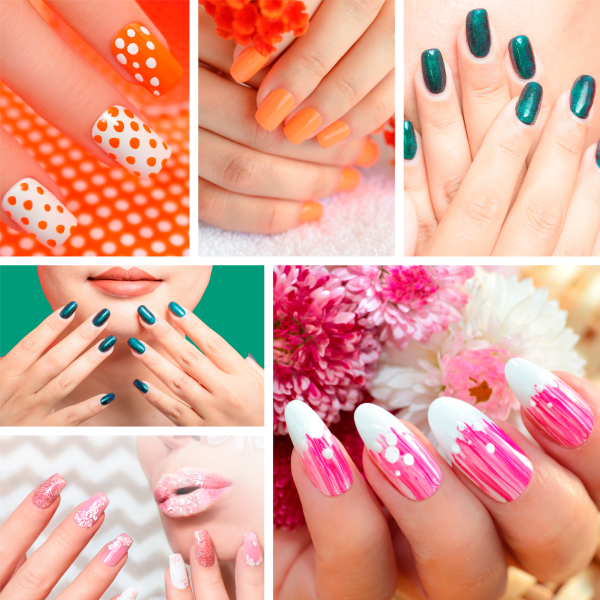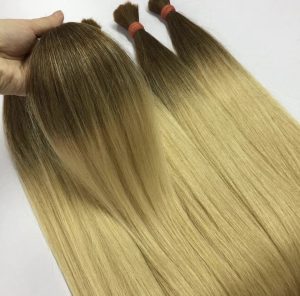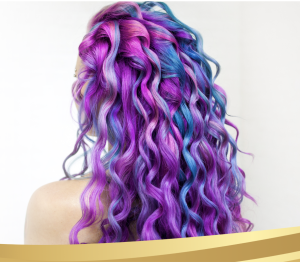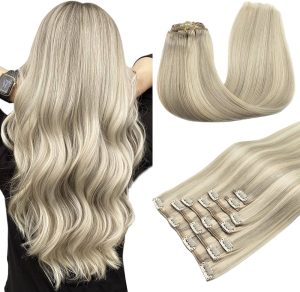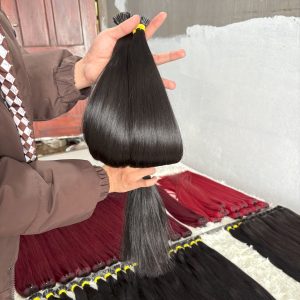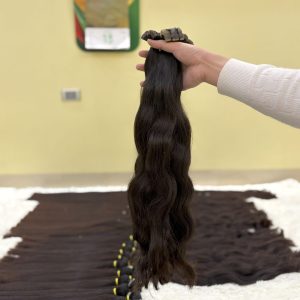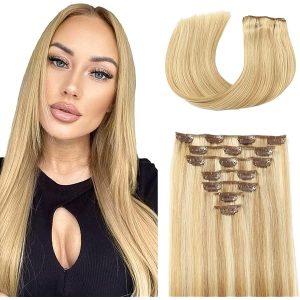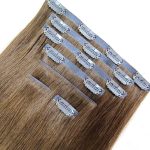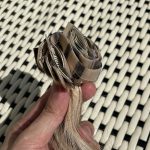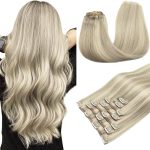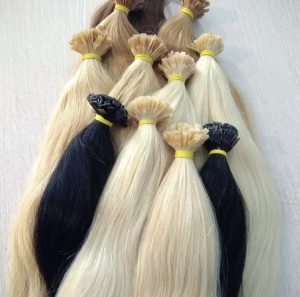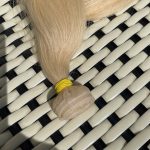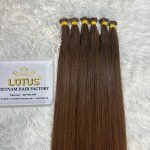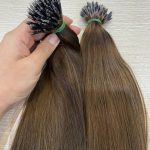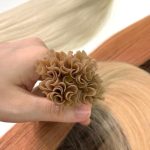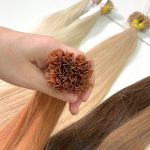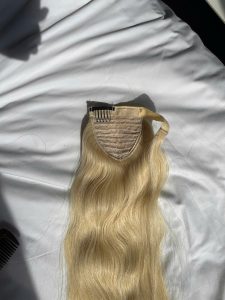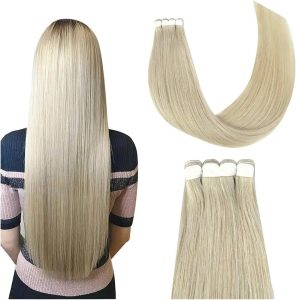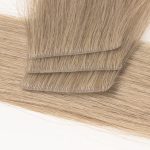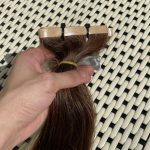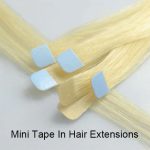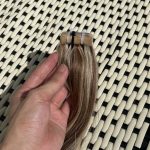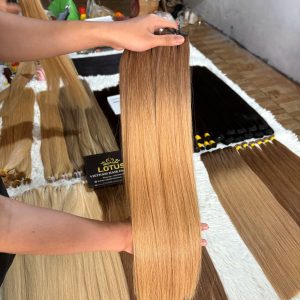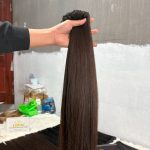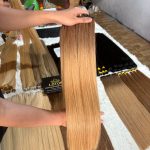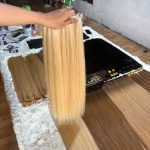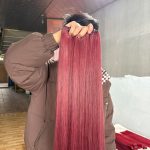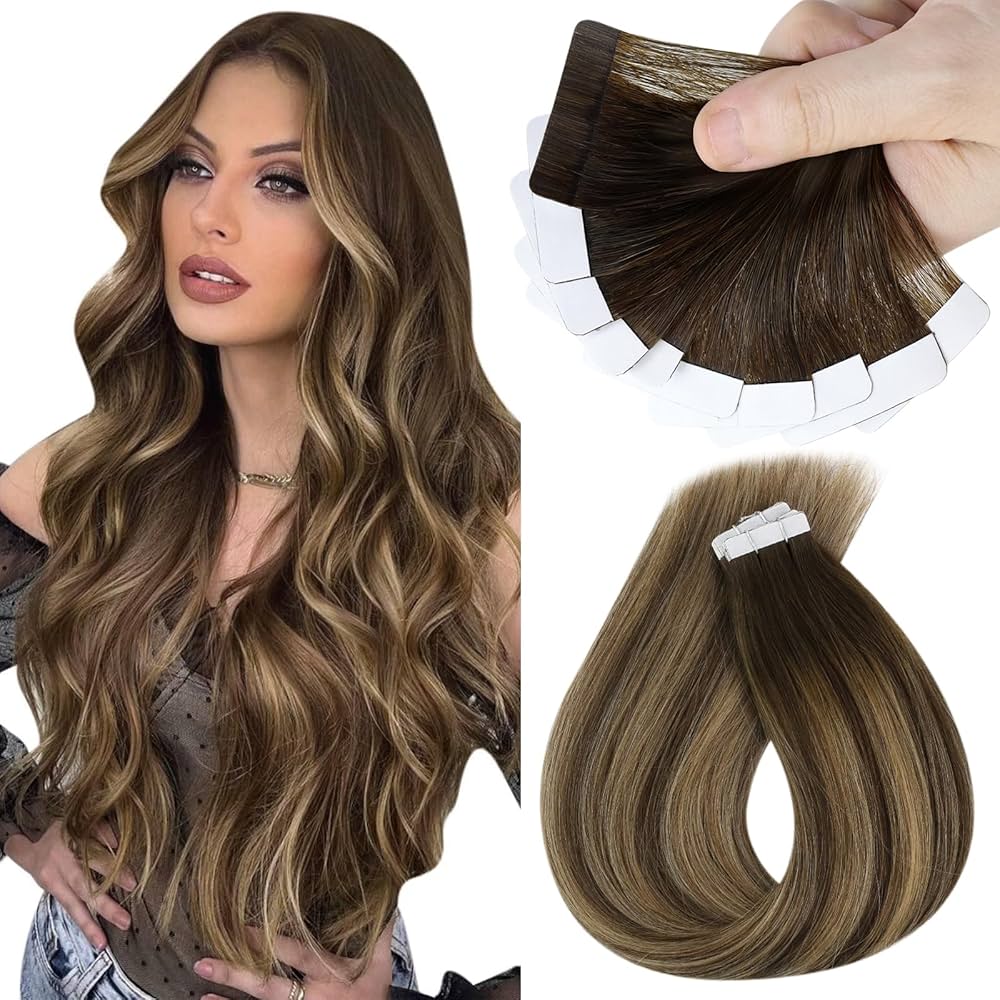The Best Hair Extensions for Sensitive Scalps
Hair extensions have long been a popular beauty solution, capable of transforming short, thin, and lifeless hair into long, voluminous, and silky locks in a short time. Not only do they provide an instant makeover, but they also boost confidence and enhance femininity and charm. However, for those with sensitive scalps, this beauty method can pose several risks if not done correctly.
Individuals prone to allergic reactions often experience uncomfortable symptoms such as itching, flaking, burning sensations, or even headaches after getting hair extensions. These reactions can make the experience unpleasant and, in more severe cases, affect the health of the scalp and natural hair.
That said, having beautiful, natural-looking hair extensions that are safe for sensitive scalps is not impossible. The key lies in choosing the right type of extensions, applying the correct technique, using high-quality materials, and most importantly, having the procedure done by a skilled technician.
The article below will help you better understand the common issues that arise when applying hair extensions on sensitive scalps, how to recognize allergic reactions, and effective solutions. We will also share tips for choosing the most suitable, safe, and optimal extensions for those with sensitive skin types.
Common Issues When Applying Hair Extensions on Sensitive Scalps
Here are the 7 most common reasons why you might experience discomfort, headaches, or scalp irritation after getting hair extensions. Understanding these causes will help you prevent and address them in a timely manner:
1. First-Time Hair Extension Experience
If it’s your first time getting hair extensions, feeling slight tension or heaviness on your scalp is completely normal. Even when applied delicately, hair extensions are still foreign objects attached to your natural hair, and your scalp may react to the unfamiliar sensation. In the first 2–3 days after application, you might feel mild soreness or a sense of pressure on your head. However, this typically fades as your scalp and hair roots adjust to the new weight and texture.
2. Pre-Existing Scalp Conditions (Dandruff, Dermatitis, Fungal Infections…)
Applying hair extensions on a scalp already suffering from conditions like severe dandruff, scalp fungus, seborrheic dermatitis, or other dermatological issues can worsen these problems. When the scalp hasn’t healed, adding adhesives and extensions can hinder recovery and increase the risk of inflammation, itching, flaking, or localized hair loss. Therefore, if you’re currently dealing with any scalp issues, it’s best to treat them fully before considering hair extensions.
3. Sensitive Scalp
Not everyone has diagnosed scalp conditions, but for those with naturally thin or sensitive skin, hair extensions can still cause persistent itching, tingling, or discomfort. In some cases, symptoms may be mild and disappear after a few days. However, if the itching lasts longer than 3 days or is accompanied by redness or burning, contact your extension technician immediately for an inspection, adjustment, or removal if needed. Ignoring symptoms can lead to deeper damage to the scalp.
4. Improper Hair Care After Extensions
Post-extension hair care, including washing and conditioning, requires more attention than caring for natural hair. Leaving shampoo, conditioner, or hair mask residue on the scalp can clog pores. This not only causes irritation and discomfort but also increases the risk of dermatitis and hair loss. Additionally, using products with strong chemicals or synthetic fragrances can trigger negative reactions in sensitive scalps.
5. Excessive Sweating
People who exercise frequently or work in hot, humid environments are more prone to excessive scalp sweating. When moisture is trapped on the scalp for extended periods without proper drying or cleansing, it creates an ideal environment for bacteria and yeast to thrive. This is a major cause of itching, redness, and prolonged irritation after hair extensions, especially in individuals with sensitive skin.
6. Incorrect Extension Technique
Using improper hair extension techniques can seriously harm scalp health. Common mistakes like attaching extensions too close to the scalp, overly tight application, or uneven hair distribution can place constant tension on the scalp. This can result in pain, damaged hair follicles, or even patchy hair loss if the situation persists. That’s why choosing a reputable salon with skilled technicians is essential, particularly for sensitive individuals.
7. Allergic Reactions to Extension Materials
Not all hair extension products are suitable for sensitive scalps. Some inexpensive extensions are treated with harsh chemicals to enhance shine, reduce tangling, or maintain color. If not thoroughly rinsed, these chemicals can remain on the hair strands and cause allergic reactions. Moreover, low-quality glues, synthetic keratin, or metal connectors may contain strong irritants. To prevent this, choose hair extensions with clearly sourced, untreated human hair. If needed, request a patch test on your skin before committing to a full-head application.
Signs of Allergic Reactions to Hair Extensions
For those with sensitive scalps, hair extensions can trigger a range of unwanted reactions. Some allergic symptoms can appear quite early—within just a few hours to a few days after the extensions are applied. Recognizing these signs promptly is essential to manage the issue and prevent lasting damage to the scalp or overall health.
Common symptoms to watch out for include:
-
Severe itching, redness, or flaking of the scalp: This is one of the most common reactions when the body does not tolerate the extension material or bonding glue. The scalp may become dry, red, persistently itchy, and flake off in small patches.
-
Rashes, bumps, or swelling around the bonded areas: If you notice small red bumps, swelling, or a burning sensation around the attachment points, it may indicate inflammation or an allergic reaction to the adhesive—especially low-quality glue.
-
Blisters or small sores: In more severe cases, small fluid-filled blisters may develop, which can rupture and lead to sores or oozing lesions. This condition requires prompt medical attention to prevent secondary infections.
-
Headache, nausea, or unusual fatigue: When the body reacts strongly to an allergen, it can affect not only the scalp but also the nervous system. If you experience unexplained fatigue, headaches, or nausea after getting extensions, it could be a sign of a systemic allergic reaction.
If you notice any of the above symptoms, remove the extensions as soon as possible. Then, consult a dermatologist for a proper diagnosis and treatment plan. Avoid self-medicating or delaying treatment, as this can worsen the condition.
Scalp Conditions to Watch Out for When Wearing Extensions
1. Scalp Flaking
Flaking is a common issue, especially for those with dry scalps or dandruff. After getting extensions, poor hygiene—such as improper shampooing or leaving conditioner or masks unwashed—can exacerbate the problem. Product buildup leads to dryness, itchiness, and visible patches of flaking.
Solution:
Use a mild, sulfate-free, and fragrance-free shampoo specifically designed for sensitive scalps. Wash your hair regularly and ensure all products are thoroughly rinsed. Avoid hot water and refrain from vigorous scratching during washing.
2. Scalp Sores
Extensions that are applied too tightly or rub against the scalp during movement or sleep can cause abrasions, inflammation, or even sores. Left untreated, these can lead to infections or localized hair loss.
Solution:
Discontinue the use of extensions immediately to prevent further irritation. Clean the affected area with a gentle antiseptic and apply anti-inflammatory ointment as prescribed by a doctor. Only consider reapplying extensions once the scalp has fully healed.
3. Bumps or Swelling from Scalp Tension
Incorrect application or using heavy extensions can create excessive tension on the hair roots, leading to redness, swelling, or small bumps due to inflammation. These typically occur in high-tension areas such as the crown or nape of the neck.
Solution:
Remove the extensions as soon as possible and apply a cold compress to reduce swelling. Consult a hair extension professional to reassess the method used and select a more suitable technique.
Hair Extension Methods Suitable for Sensitive Scalps
Not all extension methods are suitable for sensitive skin. For individuals with highly reactive scalps, choosing the right method is critical for both comfort and safety. Two techniques widely recommended by experts include:
1. Hand-Tied Weft Extensions
This method uses ultra-thin wefts that are hand-tied and sewn onto small braids made from your natural hair. It involves no glue or heat, making it gentle on the scalp. The lightweight extensions minimize tension on the roots, significantly reducing discomfort and itching. This is an ideal solution for those with delicate scalps or a history of allergic reactions to adhesives.
2. Micro Keratin Bonds
An advanced version of the traditional keratin bonding method, micro bonds use very small sections of hair (only about 0.6–0.8g per strand), greatly reducing the tension applied to the roots. This method is suitable for those with thin, weak hair or those recovering from hair loss. It doesn’t tangle or irritate the scalp and is easy to brush, even on short hair, while maintaining a natural look.
Key Factors to Consider When Choosing Hair Extensions
Hair Quality
Extensions made from low-quality or chemically treated hair are more likely to cause irritation—especially for sensitive scalps. Avoid bleached, silicone-coated, or industrially dyed hair. Opt for 100% natural, untreated human hair.
Trusted Supplier
Not all brands labeled “human hair” are trustworthy. Choose reputable suppliers with verified origin certifications and clear return policies. A highly recommended brand is Lotus Hair, which provides pure, chemical-free human hair suitable for even the most sensitive scalps.
Skilled Technician
Even with high-quality hair, a poorly trained technician can create a result that feels heavy, tangled, or uneven—and may even damage your scalp. Always go to an experienced, well-reviewed stylist who provides thorough consultations before proceeding.
Caring for a Sensitive Scalp After Getting Hair Extensions
Proper aftercare is crucial to minimize adverse reactions and extend the lifespan of your extensions:
-
Wash with lukewarm water and gently massage with your fingertips—avoid scratching.
-
Don’t wrap your hair in a towel for too long after washing, as it can trap heat and moisture, leading to irritation.
-
Let your hair air-dry whenever possible or use a blow-dryer on a cool setting. If heat styling is needed, always apply a heat protectant first.
-
Use a wide-tooth comb, brushing from ends to roots while supporting the bonded area to reduce tension on the roots.
Conclusion
Enjoying beautiful, thick, and silky hair extensions shouldn’t come at the cost of discomfort, itchiness, or scalp damage. With the right choices—from hair quality and extension method to technician and aftercare—you can fully enjoy the benefits of extensions in a safe and comfortable way.
If you have a sensitive scalp, don’t give up on the idea of extensions. Understand your skin, seek professional advice, and make informed decisions. A long, voluminous, and natural-looking hairstyle is still well within your reach.
Lotus Hair Vietnam – A Leading Manufacturer of High-Quality Hair Extensions
With over 14 years of experience, Lotus Hair Vietnam takes pride in being one of Vietnam’s leading hair extension manufacturers, specializing in providing premium Vietnamese hair to international markets. Established in 2010, we have continuously developed and strengthened our reputation worldwide, particularly in the United States and Europe.

Quality is always our top priority at Lotus Hair. We are committed to delivering consistently high-quality hair products with smooth texture, natural shine, and long-lasting durability.
Every batch of hair extensions undergoes strict quality control to ensure strength, softness, and compliance with international standards—ready to conquer even the most demanding markets like the U.S. and Europe.
Whether you are a retailer, salon owner, or distributor, we offer tailored supply solutions to help you grow your business with direct-from-factory pricing and premium-quality products.
Contact us today for expert consultation and the best pricing options!
| LOTUS HAIR VIETNAM | |
| Hotline & WhatsApp | +849.9595.3999 – Ceo – Mr. Ben +849.969.01.777 – Mr. Erik +849.969.03.777 – Ms. Tina +849.969.05.777 – Ms. Vietnam +849.969.06.777 – Ms. Maria |
| Email: | [email protected] |
| Address: | 210/11J Cach Mang Thang Tam Street, Ward 9, District 3, Ho Chi Minh City, Vietnam. |

